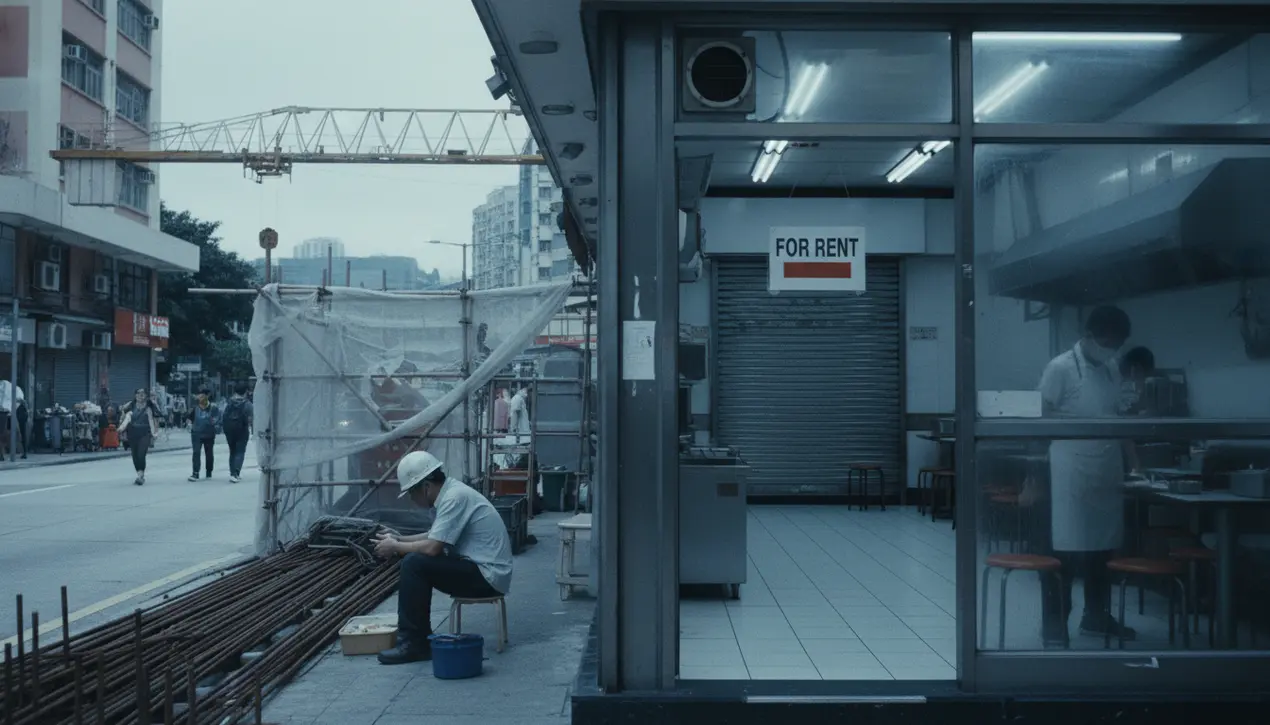- News
- macroeconomy
- Hong Kong's construction and catering sectors remain pessimistic despite unemployment drop.

FinancemacroeconomyEmployment Data
Hong Kong's construction and catering sectors remain pessimistic despite unemployment drop.
EM
Emma Wilson
2 hours ago7 min read2 comments
A flicker of statistical hope did little to warm the chilled realities of Hong Kong's construction and catering sectors this week, as a marginal drop in the city's unemployment rate failed to dispel a deep-seated pessimism gripping these foundational industries. The government’s announcement of a 3.8 per cent jobless rate for the past three months, a slight 0. 1 percentage point dip marking the first decline since mid-2023, was met not with celebration but with sobering testimony from those on the front lines.For the construction industry, the official numbers feel like a facade masking a harsher truth: a critical and sustained lack of new private development projects has created a vacuum where cranes should be swinging. This isn't a temporary lull; it speaks to a broader crisis of confidence in Hong Kong's economic future, where investors are hesitant to commit to large-scale private ventures, leaving countless skilled laborers and contractors in a state of precarious limbo.The public works initiated by the government are a mere stopgap, unable to absorb the vast workforce or stimulate the ancillary businesses that rely on a thriving private construction pipeline. Simultaneously, the food and beverage sector, often a bellwether for public sentiment and disposable income, is facing its own existential battle.Representatives point to a fundamental breakdown in the labor market: wages for junior positions—the dishwashers, bussers, and line cooks who form the backbone of every restaurant—remain stubbornly unattractive, failing to compete with the gig economy or other service industries. This isn't just about filling vacancies; it's about the soul of Hong Kong's famed culinary scene, which risks degradation as establishments are forced to operate with skeleton crews, reducing service quality and menu innovation.The unemployment rate, while a useful macro-indicator, is a dangerously blunt instrument here. It counts the officially jobless but ignores the underemployed, the discouraged workers who have stopped looking, and the quality of the jobs being created.A person moving from a stable construction job to a few shifts of delivery work is not a recovery story; it is a symptom of economic fragility. The situation echoes crises seen in other global cities where a hollowing-out of middle-skill industries has led to long-term social stratification.Without urgent, targeted policy intervention—perhaps in the form of tax incentives to spur private development and a serious dialogue about a living wage for service workers—this statistical improvement risks becoming a cruel mirage. The true measure of Hong Kong's recovery will not be found in a tenth of a percentage point, but in the return of bustling construction sites and the confident hum of fully-staffed, world-class restaurants, neither of which can be sustained on optimism alone.
#Hong Kong
#unemployment
#construction
#catering
#economic recovery
#wages
#private development
#featured
Stay Informed. Act Smarter.
Get weekly highlights, major headlines, and expert insights — then put your knowledge to work in our live prediction markets.
Comments
Loading comments...
© 2025 Outpoll Service LTD. All rights reserved.